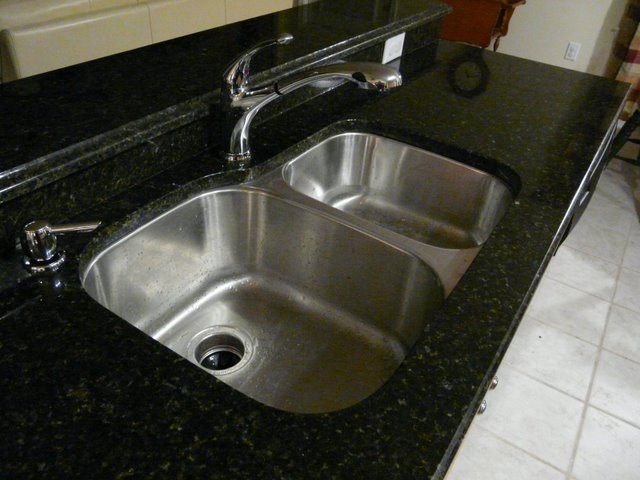Look Beyond Stainless as the Best Material for your Kitchen Sink
Think that choosing the best material for your kitchen sink means choosing between stainless and porcelain, or enamel over cast-iron? You may not have shopped for sinks lately. Although stainless sinks dominate TV home renovation shows, the reality is that homeowners have a vast array of choices before them.
The Big Five Sink Materials
In assessing the best materials for your home, there are several things you need to concern yourself with, such as quality, price, durability, and ease of cleaning.

Choosing the Best Material for your Kitchen Sink
Most materials come in several grades. While you don't always need top-of-the-line materials, you should make sure that the quality you are buying will stand up to your demands. Installing a new sink can be time-consuming and costly, so choosing the best product you can afford you a wise use of your time and money.
Whether you buy your sink from a designer, contractor, or big-box store, make sure to look at the specs. Many products indicate the temperature they can withstand and list some of the other qualities they have. Buying a new sink adds a lot your kitchen, so consider the pros and cons of each product when choosing the best material for your kitchen sink.
Photo Credit
The Big Five Sink Materials
In assessing the best materials for your home, there are several things you need to concern yourself with, such as quality, price, durability, and ease of cleaning.
- Stainless steel, the modern homeowner's darling, resists staining, is not damaged with heat or cold, is resistant to stains, and is somewhat impact resistant. Stainless steel sinks come in gauges with lower numbers being the stronger choice. A 22 gauge sink will dent and vibrate, while a 16 or 18 inch gauge will withstand a quality faucet and a disposal. Cheap sinks at big-box stores and builder grade sinks are usually higher gauges that you should bypass for a better quality product with a lower gauge number.

- Porcelain or enamel over cast-iron sinks are heavy, durable, and widely available in many shapes and colors. While they resist heat and cold, they can be damaged from the impact of a falling pan. Excessive cleaning can dull them and make them more susceptible to dirt.
- Solid surface sinks, often integrated into a solid surface countertop, are seamless and easy to clean, since there are no crevices to hide dirt and grime. High heat and sharp objects can damage solid surface sinks, which can leave you with an unsightly mess if they are part of a costly countertop set up.
- Composite sinks, made of crushed quartz or granite with an acrylic binder, are hard, scratch resistant, and heat resistant. Of these, granite is the better choice as it is the hardest material on the market. Both types are available in many bowl configurations and colors.
- Soapstone sinks, usually made from slabs of natural soapstone that are glued together, are resistant to heat and stains and impervious to chemicals, acid, and water. Because the product is so hard, dropping a glass or plate in the sink will shatter it, and the product is subject to chipping.
Choosing the Best Material for your Kitchen Sink
Most materials come in several grades. While you don't always need top-of-the-line materials, you should make sure that the quality you are buying will stand up to your demands. Installing a new sink can be time-consuming and costly, so choosing the best product you can afford you a wise use of your time and money.
Whether you buy your sink from a designer, contractor, or big-box store, make sure to look at the specs. Many products indicate the temperature they can withstand and list some of the other qualities they have. Buying a new sink adds a lot your kitchen, so consider the pros and cons of each product when choosing the best material for your kitchen sink.
Photo Credit
